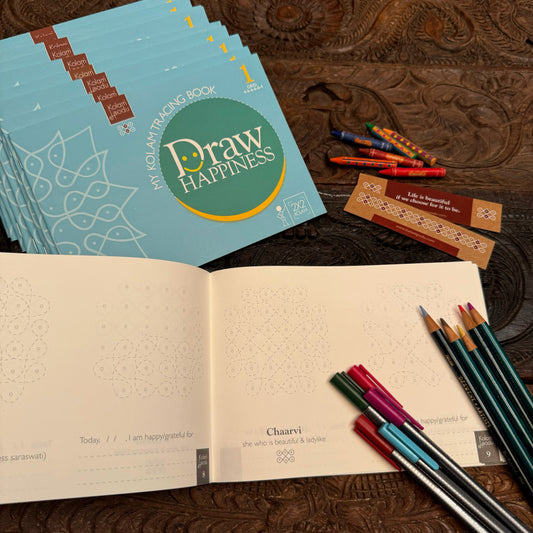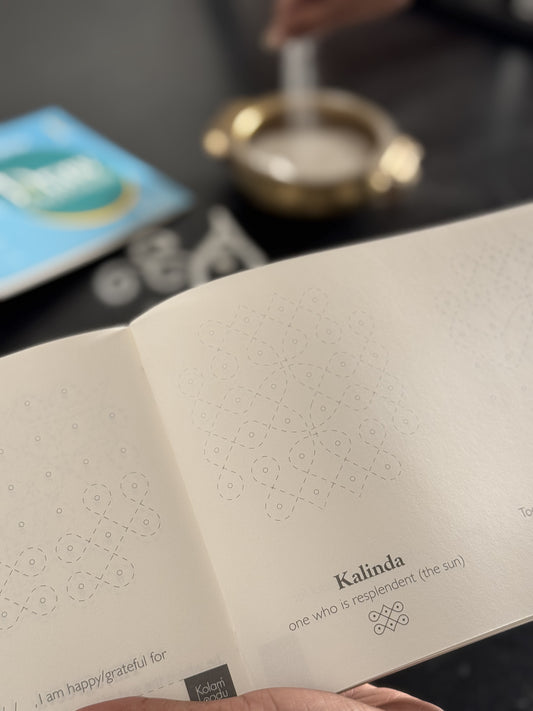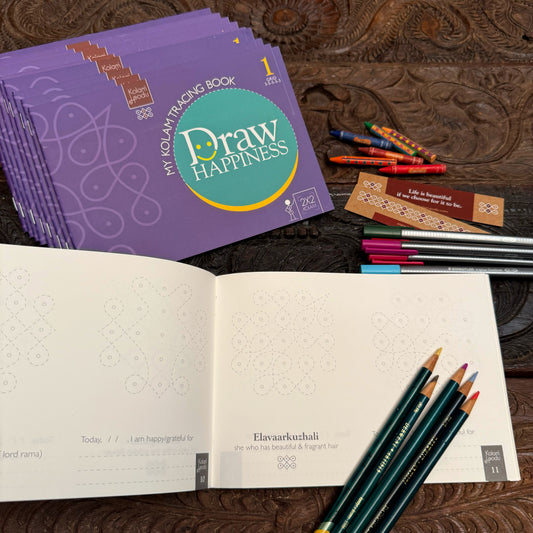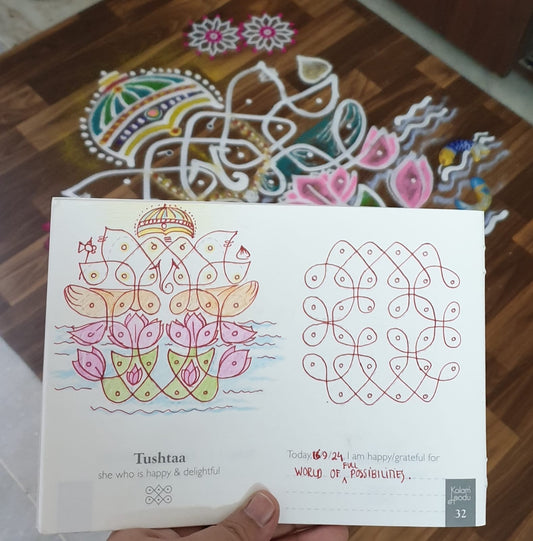Creating kolam, a traditional Indian art, fosters emotional intelligence. Through self-expression and mindfulness, individuals gain better emotional awareness. The meditative practice helps manage stress and anxiety, serving as a coping mechanism. Discussing kolam designs encourages empathy and cultural understanding, connecting emotions with symbolism. Artistic interpretation allows for complex emotional expression, while social bonding enhances interpersonal connections. Kolam supports emotional regulation and personal growth, enriching overall well-being through a culturally significant and emotionally expressive art form.
Emotional intelligence refers to the ability to recognize, understand, manage, and express emotions effectively in oneself and others. It involves being aware of one's emotions, empathizing with others, handling interpersonal relationships with sensitivity, and making decisions based on emotional awareness. Emotional intelligence plays a significant role in personal and social well-being, as it influences how individuals navigate through various situations and interact with others.
Drawing kolam can enhance emotional intelligence in the following ways:
- Self-Expression: Kolam creation provides a means of self-expression, allowing individuals to channel their emotions and feelings into the art. Drawing kolams can serve as a therapeutic outlet, helping individuals process and understand their emotions better.
- Mindfulness and Relaxation: Engaging in kolam art can induce a sense of calm and relaxation. This meditative experience fosters mindfulness, allowing individuals to be more attuned to their emotions and thoughts.
- Emotional Awareness: Drawing kolam requires focus and attention to detail. During the process, individuals become more aware of their emotional state, enabling them to identify and acknowledge their feelings.
- Coping Mechanism: Creating kolam can serve as a coping mechanism during times of stress or emotional distress. The act of drawing and concentrating on the patterns can help individuals manage their emotions and reduce anxiety.
- Empathy and Understanding: Kolam designs often carry symbolic meanings and can evoke emotions in both the artist and the viewers. Discussing kolam art with others encourages empathy and understanding of different emotional responses to the same artwork.
- Cultural and Symbolic Expression: Kolam patterns may have cultural or traditional significance associated with specific emotions or occasions. Understanding the symbolism in kolam designs helps individuals connect emotions with cultural expressions.
- Artistic Interpretation: As kolam creation involves creativity and artistic interpretation, individuals can express complex emotions through their unique designs, using colours and patterns to reflect their emotional state.
- Social Bonding: Drawing kolam together during festivals or social events fosters a sense of togetherness and emotional connection with others. Sharing emotions through art can strengthen social bonds and create a supportive environment.
- Emotional Regulation: Engaging in kolam art regularly can enhance emotional regulation skills. By being aware of their emotions and expressing them creatively, individuals can learn to manage and cope with emotional fluctuations effectively.
- Personal Growth: The introspective nature of kolam creation encourages personal growth. Artists may gain insights into their emotional responses and develop a deeper understanding of themselves and others.
This traditional art form aids individuals in developing emotional intelligence, leading to more fulfilling and harmonious interpersonal relationships.
Kolam in Tamil Nadu is muggulu in Andhra Pradesh and Telangana, rangoli in Maharashtra, hase and rangavali in Karnataka, alopana in Bengal, to name a few.
Life is beautiful if we choose for it to be. Let’s draw happiness!







